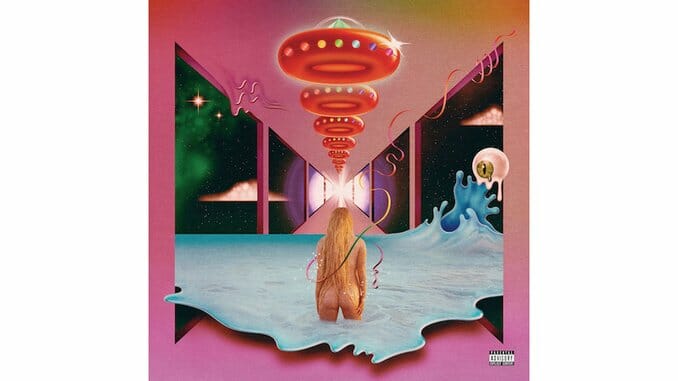Kesha: Rainbow

It’s not uncommon for pop stars to emerge with an industry-constructed image. From Britney Spear’s “girl next door” persona to Lana Del Rey’s “Laurel Canyon goddess,” musicians have began their careers as manufactured products. When Kesha first surfaced in 2009 with “TiK ToK,” she was portrayed as a gritty party girl whose songs were (too) often over-AutoTuned. But throughout her career, it was clear there was a lot more to be had than her dancefloor pop songs.
In reality, she had the vocals of a popstar, rockstar and country singer. Last year on the Kesha and the Creepies: Fuck the World Tour, she was legally only allowed to sing alternate versions of her songs under label RCA/Kemosabe. Often she put a twang twist on her songs and even formed a rock ‘n’ roll band Yeast Infection in 2016. Her sonic evolution didn’t go unnoticed, and it was becoming apparent that she had moved beyond the hype of her first single that chronicled how she woke up “feeling like P. Diddy.”
Since the release of Kesha’s first new track in four years “Praying,” she’s made a point of showing that her latest songs are catharsis, personal therapy. It’s no secret her ongoing legal battles with producer Dr. Luke have taken a heartbreaking toll on her life and career. And without naming names, she tells her story, her way, but focuses her gospel-fueled lyrics on being the better person (and by giving you chills with her rallying cry). But what’s most incredible is the fact that Kesha’s. “Praying” is without a doubt the standout song on the album, which isn’t often the case for singles, But it’s such an emotive, confessional piece of writing that shows her vocals hitting a shrill high note that undoubtedly gave you chills.
In following her songwriting throughout Animal and Warrior, Kesha delved into soulful balladry (“The Harold Song, “Wonderland”) and shades of rock ‘n’ roll (“Dirty Love” alongside Iggy Pop) where she could, even if her singles were club-ready tracks. On Rainbow, Kesha doesn’t hold back — exploring her own underutilized talent and knack for barebones songwriting.
-

-

-

-

-

-

-

-

-

-

-

-

-

-

-

-

-

-

-

-

-

-

-

-

-

-

-

-

-

-

-

-

-

-

-

-

-

-

-

-








































